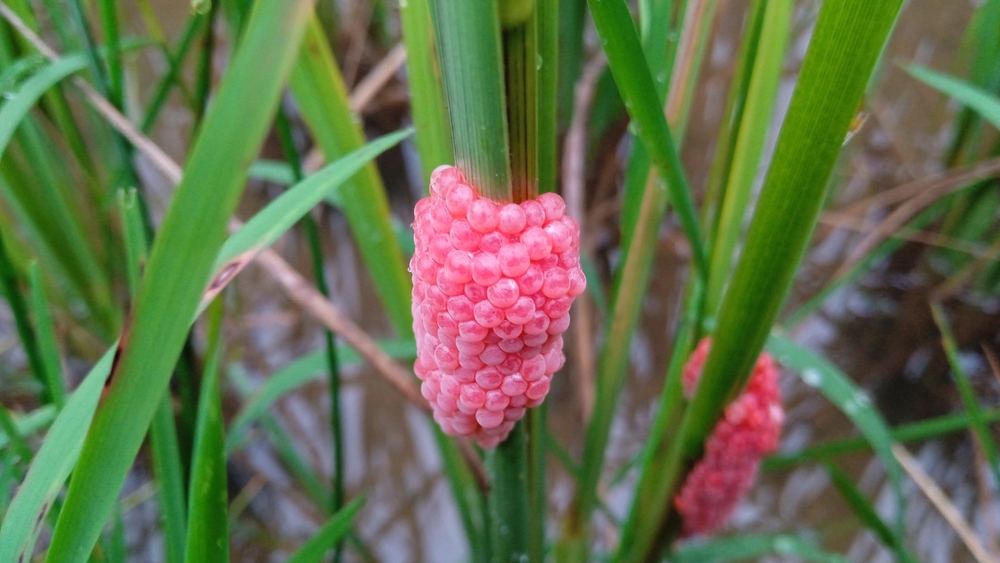If You Find Pink Eggs in Your Garden, Act Quickly.
Others are reading now
Apple snails are an unwanted, invasive species. These intruders can pose a threat to native plants and animals if they spread.
The eggs of apple snails are unmistakable, shining bright pink even from a distance. If you find these in your garden or while walking, attached to plant stems or stones, you should act quickly. The genus Pomacea consists of invasive species that can cause massive damage to many plant species. Especially those who own an aquarium, a pond, or have a neighbor with one should keep their eyes peeled: Apple snails prefer to stay near bodies of water such as rivers or streams, or in ponds.
Apple Snails Threaten Native Species and Crops
Originating from South America, apple snails have spread across North America and Asia, and sightings have been reported in Spain, Switzerland, and France. Germany aims to prevent the spread of these pests: According to the Julius Kühn Institute, the distribution of the Pomacea genus within the EU is prohibited, and freshwater snails may not be sold or passed from one aquarium owner to another.
Aquarium owners appreciate apple snails for their algae-eating cleaning abilities. However, some circumvent this ban, allowing the creatures to escape into the environment, for example, through garden ponds. Accidental import through eggs on aquarium and pond plants is also possible.
Also read
This has already endangered crops in other countries, and apple snails displace native species. They have no natural predators in Germany. Currently, the climate may still be too cool for a massive spread, but climate change could soon make it possible, as with the Nosferatu spider or the Asian hornet.
Recommendations for Action upon Finding Apple Snail Eggs
For laypeople, adult apple snails are indistinguishable from native freshwater snails. If you suspect you have found apple snails or their eggs, this must be reported to the plant protection service of the respective federal state.
In some Pomacea species, the eggs can also be brightly colored red, orange, or green. According to Heimbiotop.de, the bright warning color may indicate the danger of the eggs, as they can contain a deadly neurotoxin.
On his TikTok channel IdkSterling, a user from Seattle warns vividly about the pink clutches and has a somewhat more drastic recommendation, which should not be followed as a first step in other countries:
“If you find these eggs, crush them immediately.” The snails can reproduce very quickly, kill native species, and can transmit diseases.



